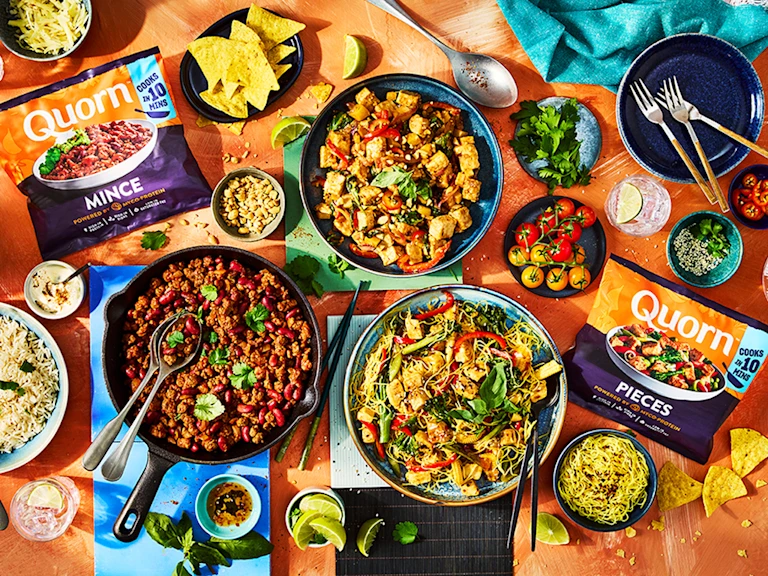
What's new

The way we eat and feed our children has changed significantly in recent years. An increasing number of families are opting to follow a more plant-based or flexitarian diet, and so the consumption of meat alternative products is on the rise.
For many families, it's important to be able to share meals with their children and avoid preparing multiple different meals, so it's understandable that parents are interested in whether meat-alternatives are suitable for their babies (from six months of age) and young children. Nutrition in childhood can have a lasting impact on eating patterns throughout later life, so it's important to support the nutritional needs of children right from the start1.
Read on to find out more about children's nutrition and our top tips whether you're following a vegetarian, vegan or flexitarian diet for your child.
A well-planned vegetarian or vegan diet can be suitable for babies and young children, provided that any nutrients which can be lacking in plant-based diets, are replaced through food or supplements2. Key nutrients to be mindful of for children following vegetarian or vegan diets, and appropriate non-animal sources are shown in the table below.
| Nutrient | Plant-based Sources | Considerations |
|---|---|---|
| Iron | Lentils, beans and pulses, dark green leafy vegetables, tofu and soya beans, nuts, ground linseed, chia seeds, hemp seeds, dried apricots. | Consuming a source of vitamin C alongside plant-based sources of iron is recommended to increase absorption. |
| Iodine | Seaweed*, some fortified alternative milks**. | *Not recommended more than once a week.
**Not all are currently fortified with iodine. |
| Calcium | Calcium-set tofu*, dark green leafy vegetables (e.g. broccoli, spinach), pak choi, sesame seeds, calcium-fortified alternative milks, cereals, bread. | * Tofu products must be calcium-set to provide a source of calcium. |
| Vitamin B12 | Nutritional yeast, yeast spreads, fortified cereals. | If following an entirely vegan diet, a supplement would be recommended. |
| Omega-3 Fatty Acids | Hemp seeds, pumpkin seeds, sunflower seeds, chia seeds, walnuts, soya spread. | Plant-based omega-3 fatty acids do not provide a direct source of EPA or DHA - an appropriate supplement may be recommended if no fish is consumed. |
| Zinc | Wholegrains, quinoa, beans, chickpeas, lentils, mycoprotein, tofu, cashew nuts, walnuts, seeds (chia, pumpkin, linseed). | Absorption from plant-based sources of zinc, including wholegrains and pulses. Can be impacted by other compounds found within these foods, such as phytates. Children following a plant-based diet should consume a variety of foods containing zinc. |
| Choline | Mycoprotein, broccoli, pulses, almonds. | Plant-based Sources of choline generally contain lower amounts than animal foods. If following a plant-based diet, children should aim to include plenty of sources of choline. |
Whether consumed as a substitute for animal products in a child’s diet, or simply to provide variety, mycoprotein (derived from a natural fungus) can provide essential nutrients that are important for young children’s growth and development, including protein - children following a plant-based diet should be offered three protein-rich foods per day.
There is currently no evidence to suggest that mycoprotein is unsuitable for babies from when they start on solid foods. However, an important element of feeding babies and young children is to ensure that they are offered plenty of energy and plenty of variety, particularly when it comes to plant-based and alternative proteins and iron rich foods, such as beans and pulses.
Whilst mycoprotein and plant-based alternatives to meat are nutritious and are suitable for babies and can be incorporated into the diet of young children, it is important to do so with moderation, as they are high in fibre and low in fat. A diet too high in fibre isn’t ideal for babies and young children as it can mean they fill up before having enough variety of nutrients.
Additionally, fat is an important nutrient for babies’ growth and development so it’s important to include plenty of fat-containing foods in their diet. More detail on nutrient considerations for children can be found below.
| Energy (kcal/100g) | Carbohydrate (g/100g) | Protein (g/100g) | Fibre (g/100g) | Fat (g/100g) | Saturated Fat (g/100g) | Iron (mg/100g) | Calcium (mg/100g) | Sodium (mg/100g) | |
|---|---|---|---|---|---|---|---|---|---|
| Quorn Pieces | 95 | 1.5 | 14.3 | 6.4 | 2.1 | 0.4 | 0.51 | 160 | 0.24 |
| Quorn Mince | 92 | 2.1 | 14.5 | 7.9 | 1.1 | 0.2 | 0.44 | 170 | 0.08 |
| Quorn Fillets | 82 | 1.0 | 14.1 | 5.9 | 1.1 | 0.2 | 0.43 | 170 | 0.34 |
| Chickpeas | 114 | 14.7 | 7.2 | 4.8 | 2.9 | 0.3 | 1.5 | 43 | trace |
| Red Lentils | 98 | 16 | 7.6 | 4.1 | 0.4 | trace | 2.4 | 16 | 12 |
| Kidney Beans | 91 | 14.4 | 6.9 | 8.5 | 0.6 | 0.1 | 2 | 71 | trace |
| Tofu | 73 | 0.7 | 8.1 | 0.3 | 4.2 | 0.5 | 1.2 | * | 4 |
Source: Nutritics Analysis Software & Marlow Foods, 2022
* Not all tofu products are calcium-fortified and therefore the amount of calcium will vary by brand.
It's important to offer calcium-fortified tofu to young children, particularly if they follow a dairy-free diet.
Fungi and plant-based options offer a variety of different nutrients, in varying amounts. Some meat alternative foods are higher in fibre and carbohydrates and lower in calories and fat when compared with mycoprotein. This highlights the importance of including a variety of foods in your child’s diet to ensure an appropriate balance of nutrients.
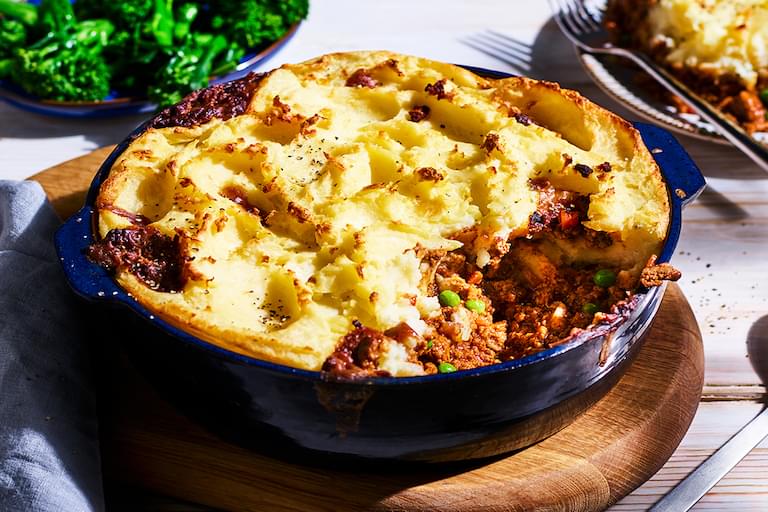
Young children have high energy and nutrient requirements to support their growth and development. They are particularly active, are growing at fast rates and can have small appetites, so should be offered energy and nutrient-dense foods to ensure they are able to meet their requirements.
As the most energy dense macronutrient, fat is an important contributor of energy for growing children. It’s because of this that low-fat products, including low-fat dairy, are not recommended for young children. Many plant-based/alternative protein foods, are also quite low in fat, so it’s important to ensure that when these options are being served at mealtimes, that you are also including foods that contain plenty of fat, such as oily fish, avocado, nuts and seeds, olive oil, rapeseed oil and full-fat yoghurt.
Protein is essential for growth, maintenance, and repair for the body. Protein foods such as fish, meat and dairy also contain key nutrients needed for children’s health, including iron, omega-3, zinc, selenium, and calcium. Protein containing foods should ideally be offered twice a day, or even three times daily to vegetarian children.
Not all plant-based proteins contain all ‘essential’ amino acids too. Amino acids are the ‘building blocks’ for proteins, some of which can only be obtained through our diet – these are called ‘essential’ amino acids. For children following a plant-based diet, it’s important for them to eat a variety of protein containing foods. Some alternative proteins, including tofu, quinoa and mycoprotein, are high-quality sources of protein that provide all of the nine essential amino acids required.
A baby’s iron stores start to diminish around the age of six months, it then becomes important that plenty of iron-rich foods are introduced during weaning. NDNS data suggests that 30% of 1.5-3 year olds do not meet iron requirements3. Non-haem iron, found in plant-based foods, is less bioavailable than haem iron from animal sources, which is why children following a plant-based diet need to consume more iron rich foods.
Children should also consume vitamin C containing foods alongside plant-based sources of iron, to aid absorption.
Calcium is particularly important during childhood and adolescence, for the formation of strong, healthy bones and teeth. It can be more difficult for children who don’t consume dairy to meet calcium requirements, so it’s important to include a variety of calcium-rich foods in children’s diets.
It’s important for children to avoid high levels of sodium in their foods to support their health throughout childhood and later life, and to allow them to develop a taste for foods without excess levels of added sodium.
Some Quorn mycoprotein products contain egg, milk and gluten which are known allergens. Children with any of these allergies should opt for products that do not contain these allergenic ingredients.
Quorn mycoprotein can be consumed in moderation by babies and young children as part of a varied and balanced diet. Meat alternatives, such as Quorn mycoprotein, provide a source of protein and are increasingly being consumed as part of flexitarian, vegetarian or vegan diets. These diets can provide all the nutrition a growing child needs if they are well planned and ensure that they include all of the nutrients which may be lacking in plant-based diets, such as iron and vitamin B12.
Thank you to our guest blog authors:
For family mealtime inspiration, visit the Quorn recipe hub, where you’ll find ideas from delicious pasta and Mexican inspired meals, to curries, crunchy nuggets and Quorn Roarsomes dinosaur nuggets, so that you can prepare all your favourites in absolutely no time at all.
If you are a healthcare professional, visit www.quornnutrition.com for more information about Quorn mycoprotein.
Data Sources:
1. Birch, L., Savage, J.S. and Ventura, A. (2007). Influences on the Development of Children’s Eating Behaviours: From Infancy to Adolescence. Canadian journal of dietetic practice and research : a publication of Dietitians of Canada = Revue canadienne de la pratique et de la recherche en dietetique : une publication des Dietetistes du Canada, [online] 68(1), pp.s1–s56. Available at: https://www.ncbi.nlm.nih.gov/pmc/articles/PMC2678872/pdf/nihms-62775.pdf
2. Alexy, U., Fischer, M., Weder, S., Längler, A., Michalsen, A., Sputtek, A. and Keller, M. (2021). Nutrient Intake and Status of German Children and Adolescents Consuming Vegetarian, Vegan or Omnivore Diets: Results of the VeChi Youth Study. Nutrients, [online] 13(5), p.1707. Available at: https://www.mdpi.com/2072-6643/13/5/1707
3. British Nutrition Foundation. (2020). Key findings from NDNS report for years 9 to 11 (combined) - British Nutrition Foundation. [online] Available at: https://www.nutrition.org.uk/news/2020/key-findings-from-ndns-report-for-years-9-to-11-combined/#iron

What's new
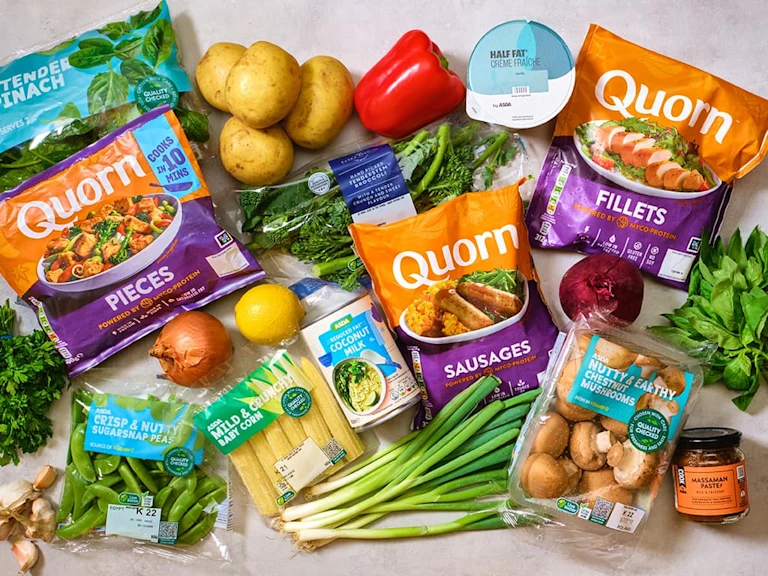
What's new

What's new

What's new
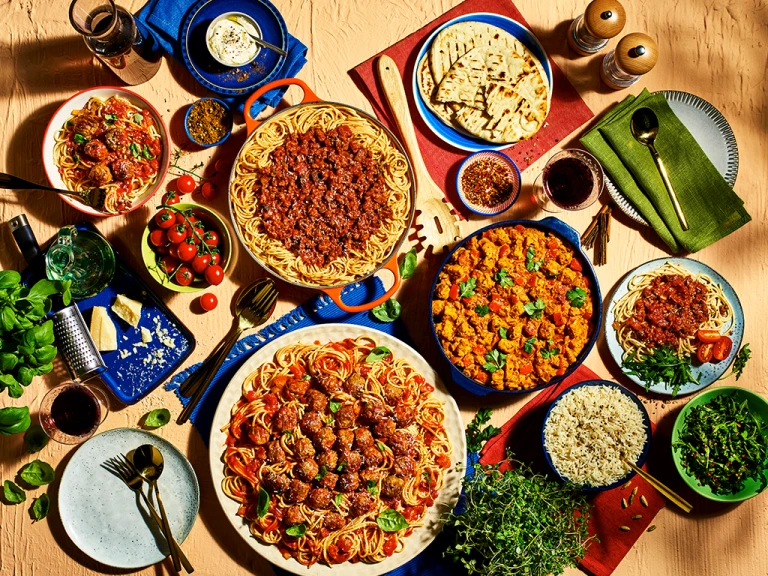
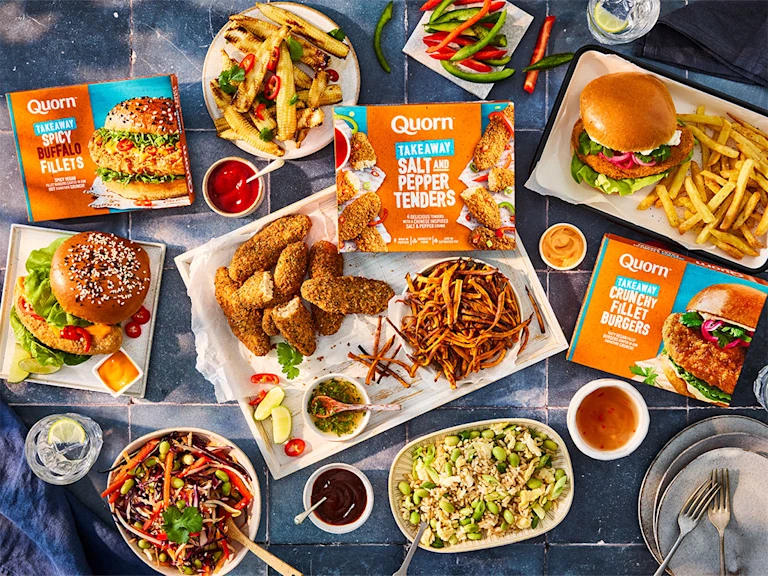
We and our partners use technologies such as cookies on our site to enhance your user experience, personalise content and ads, provide social media features, and analyse our traffic. To agree with our use of cookies, click ‘Accept All’, to express specific preferences, select ‘More Options' below. For further details or to change your consent choices at any time – see our Cookie Policy.